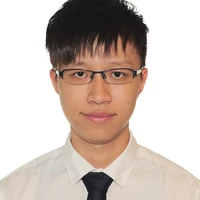⏶99
灵枢:面向统一多模态医学理解与推理的通用基础模型
发表
由  Hou Pong (Ken) Chan 提交
Hou Pong (Ken) Chan 提交
作者: LASA Team,  Weiwen Xu,
Weiwen Xu,  Hou Pong Chan, Long Li, Mahani Aljunied, Ruifeng Yuan,
Hou Pong Chan, Long Li, Mahani Aljunied, Ruifeng Yuan,  Jianyu Wang,
Jianyu Wang,  Chenghao Xiao, Guizhen Chen, Chaoqun Liu, Zhaodonghui Li,
Chenghao Xiao, Guizhen Chen, Chaoqun Liu, Zhaodonghui Li,  Yu Sun, Junao Shen, Chaojun Wang, Jie Tan, Deli Zhao, Tingyang Xu,
Yu Sun, Junao Shen, Chaojun Wang, Jie Tan, Deli Zhao, Tingyang Xu,  Hao Zhang,
Hao Zhang,  Yu Rong
Yu Rong
摘要
Multimodal Large Language Models (MLLMs) have demonstrated impressive
capabilities in understanding common visual elements, largely due to their
large-scale datasets and advanced training strategies. However, their
effectiveness in medical applications remains limited due to the inherent
discrepancies between data and tasks in medical scenarios and those in the
general domain. Concretely, existing medical MLLMs face the following critical
limitations: (1) limited coverage of medical knowledge beyond imaging, (2)
heightened susceptibility to hallucinations due to suboptimal data curation
processes, (3) lack of reasoning capabilities tailored for complex medical
scenarios. To address these challenges, we first propose a comprehensive data
curation procedure that (1) efficiently acquires rich medical knowledge data
not only from medical imaging but also from extensive medical texts and
general-domain data; and (2) synthesizes accurate medical captions, visual
question answering (VQA), and reasoning samples. As a result, we build a
multimodal dataset enriched with extensive medical knowledge. Building on the
curated data, we introduce our medical-specialized MLLM: Lingshu. Lingshu
undergoes multi-stage training to embed medical expertise and enhance its
task-solving capabilities progressively. Besides, we preliminarily explore the
potential of applying reinforcement learning with verifiable rewards paradigm
to enhance Lingshu's medical reasoning ability. Additionally, we develop
MedEvalKit, a unified evaluation framework that consolidates leading multimodal
and textual medical benchmarks for standardized, fair, and efficient model
assessment. We evaluate the performance of Lingshu on three fundamental medical
tasks, multimodal QA, text-based QA, and medical report generation. The results
show that Lingshu consistently outperforms the existing open-source multimodal
models on most tasks ...


🌟 亮点:
灵枢支持超过12种医学影像模态,包括X射线、CT扫描、MRI、显微镜、超声、组织病理学、皮肤镜、眼底、OCT、数码摄影、内窥镜和PET。
灵枢模型在大多数医学多模态/文本问答和报告生成任务中,对于7B和32模型尺寸,均达到了最先进(SOTA)水平。
灵枢-32B 在大多数多模态问答和报告生成任务中,性能优于GPT-4.1和Claude Sonnet 4。